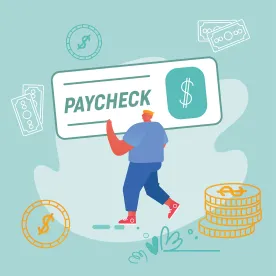On June 4, 2020, Congress passed the Paycheck Protection Program Flexibility Act of 2020 (“PPP Flexibility Act”), which provides a number of adjustments to the Paycheck Protection Program and expands which employers can defer remittance of their 6.2% share of Social Security. This Legal Update provides a snapshot of the changes to the Paycheck Protection Program and summarizes tax deferral changes that will become law upon President Trump’s signature.
Changes to Paycheck Protection Program
The following table highlights key changes to the Paycheck Protection Program found in the PPP Flexibility Act:
Topic |
Original Treatment (under CARES Act and SBA regulation) |
PPP Flexibility Act Treatment |
Potential Impact |
|
Maturity of PPP loan balance after forgiveness determination |
Two years |
At least five years for loans issued after the enactment of the PPP Flexibility Act |
For existing loans, borrowers and lenders are able to mutually agree to a loan maturity date that is longer than the two years that had been directed by SBA regulations |
|
Covered Period |
End date of June 30, 2020 |
End date of December 31, 2020 |
The point in time to assess the return to pre COVID-19 headcount and wages has increased flexibility |
|
Applicable window for determining forgiveness |
Eight weeks after the origination of the loan |
Twenty-four weeks after the origination of the loan |
Borrowers will have more time in which to spend PPP funds, and have them count towards the forgiveness determination |
|
Percentage of PPP loan proceeds spent on Payroll Costs to maximize forgiveness |
75% must be spent on Payroll Cost, with a proportional reduction in the forgiven amount to the extent below that threshold |
60% must be spent on Payroll Cost, with borrowers potentially being ineligible for forgiveness if that threshold is not met |
Borrowers will be able to use more PPP funds on permitted expenses other than payroll costs, but missing the 60% threshold may result in zero forgiveness |
Updates to Tax Deferral
The PPP Flexibility Act also makes a significant change to the CARES Act provisions that allowed employers to defer remittance of their 6.2% share of Social Security for over two years. The CARES Act allows employers to defer payment of 50% of their Social Security liability until December 1, 2021 and the other 50% until December 31, 2022. A similar deferral is allowed for self-employed individuals. However, the deferral was only available to those who did not receive a PPP loan. The PPP Flexibility Act has removed this restriction. All employers may now defer their 6.2% share of Social Security tax regardless of whether they obtained a PPP loan.




 />i
/>i
